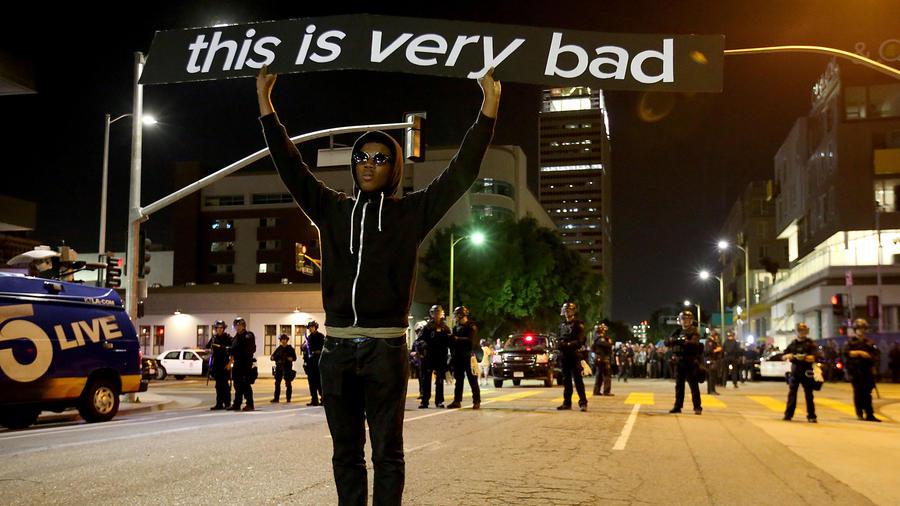A Late Night Letter to the Electors
by Cord J. Whitaker
It is ironic that this election season and its aftermath have been permeated by the disbelief in and misrepresentation of facts. It is ironic because all the handwringing is motivated by a desire for facts to matter in the future, but this may already be the end.
The end of what, I am not exactly sure: the two-party system? Neoliberal economic policy? American hegemony? The United States of America as we know it? The world? Students have confided in me: “Every day feels like the world is ending.” As my wife and I ponder our family’s future in the US or elsewhere in the world, many statements begin with “If the world is still here…” When we discuss our two-and-a-half-year-old daughter, the refrain is “If anything happens to her…” Colleagues fear the reappearance of internment camps. Other colleagues fear the emboldenment of the Klan. We have certainly come to the end of something. And that something includes a sense of safety. That something includes feeling secure enough to engage in “the pursuit of happiness” for large numbers of citizens and others living on American shores.
Millions are living in fear. It is not an overestimation to say that more than half of the US population is now living in uncertainty—more than 150 million people—and a significant portion of those are living in abject fear. The incoming presidential administration and those forces it has directly and indirectly unleashed have openly expressed hatred for people of color, women, the LGBTQ community, Muslims, Jews, the disabled, and anyone who does not fit some warped idea of the normal. Most of us human beings do not fit that warped norm. Consider this: if your middle school bully had the diplomatic and military powers of the US in his hands while he was abusing you, how would that have gone?
That is why millions have been afraid for their lives, their families’ lives, and their ways of life for the past five weeks. My family and I are leaving the country during the “inauguration.” I know many other people of color who are leaving, too, for one reason or another. Many of these trips were planned before the events of November 8, and should recall all the uncanny reasons that people who were almost always in the World Trade Center Towers by 8 am were late or not planning to come on September 11, 2001.
What’s more, to those who are not experiencing this fear it is nearly impossible to convey its depth. One elector has been quoted as saying of people who have lobbied him not to vote for Trump:
Most of them are women that are just for some reason terrified of what Donald Trump is going to do to them, and again, a lot of them are people of color and LGBT people, and they are just concerned that he is going to — I don’t know what they’re concerned he’s going to do. I don’t know what he could do as president.
To that, I answer that we are afraid that he will do exactly what he has already done: perpetrate sexual violence and, consequently, make it ok for others to follow suit. We are afraid that he will make good on his implicit and explicit threats against Jews and Muslims–threats made clear with references to “international banks,” the use of the Star of David in tweets, and suggestions that he would approve of Muslims having to “register” their existence with the government. We are afraid that since he believes that those of us who are black live in “hell” and that those of us who are “Mexicans” (with Mexicans standing-in for all Latinos) are “rapists,” he will find ways to treat us all like we are demons to be wiped from the face of the earth, to be sent back to “hell.” We are afraid that he will merely ridicule those of us who are disabled, rather than strive to maintain and build support systems that will help us live independently and with dignity. And we have every reason to be afraid. These are his own words, his own actions. There is no fiction here. These are facts.
This is the end. It is the end of much that many of us hold dear, and it may indeed be the end of folks taking facts seriously. But it is certainly not the end of facts. Nor is it the end of their consequences, no matter how very, very dire.
Cord J. Whitaker is a professor of English at Wellesley College, where he teaches on medieval literature and the history of race. He blogs at whatisracialdifference.com.

